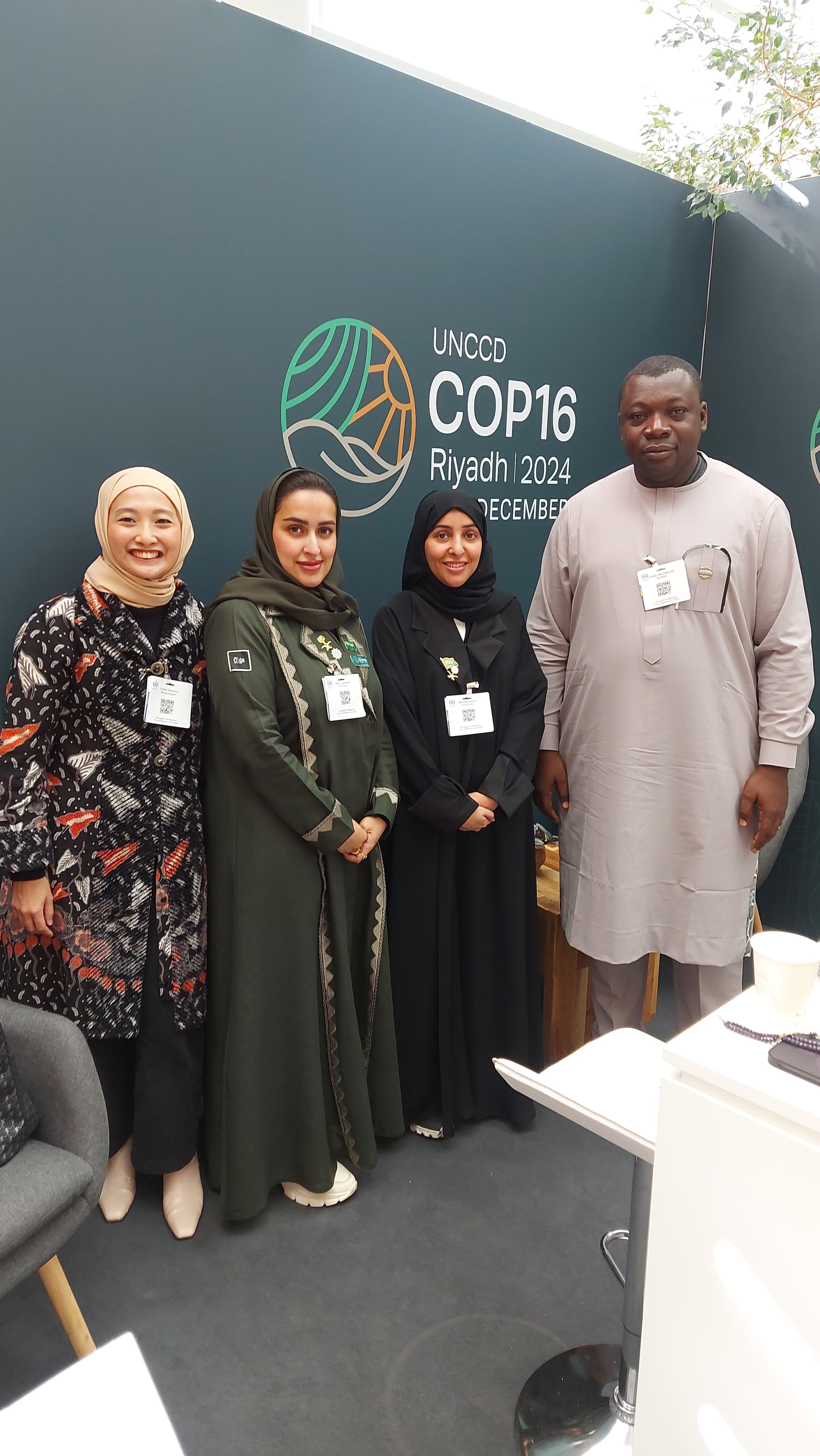The event brought together countries, experts, and practitioners to review progress and lessons learned since the High-Level Meeting on National Drought Policy (HMNDP) of 2013, and to explore and define a joint way forward towards a drought-resilient world.
The objectives of the conference included:
- Reflection on successes and challenges of the past 10 years of drought risk management to learn how to achieve drought resilience in the next decade.
- Consolidate and plan jointly how drought resilience can be brought to scale to respond to the accelerating impacts of climate change in the next decade.
- Work with political leaders to strengthen awareness, mobilize resources, prioritize drought, and increase commitments to building drought resilience and implementing Integrated Drought Management.
Attended by around 1.000 participants from 143 countries (online and in person), with more than 280 from 84 countries attending in person in Geneva, the conference started with the opening ceremony by the World Meteorological Organization (WMO). WMO shared that the Integrated Drought Management Programme (IDMP) was established 11 years ago as a joint initiative between GWP and WMO to raise global commitment to drought. The conference was established as an effort to address drought risk and climate change in a more proactive approach.
With 10 10-year span, the 2nd Drought 10+ resilience conference this year emphasized on drought key studies and community-led actions. National meteorological and hydrological services as WMO focal points in the country were invited and involved in the conference, as their role in providing climatic and forecasting data and strengthening collaboration across international and national communities are very vital at the country level. In the opening remark, the Ambassador of Spain for Switzerland mentioned Spain's intervention in combating drought by promoting good agricultural practices and by providing training for early warning systems to the farmers.
During the high-level panel, Dr. Mark Svoboda, Director of the National Drought Mitigation Centre of the United States mentioned that the mindset of drought is currently shifting and needs to be more proactive. The 10 steps of drought policy and preparedness process were developed in 2000 and have been introduced in the global community by IDMP and global experts, however, the challenge persists. The investment is dedicated mostly to drought response, rather than drought mitigation (with 95% investment in drought response, and only 5 % on drought mitigation).
The conference was also attended by youth representative, Juliet Grace Luwedde from the UNCCD Youth Caucus from Uganda who mentioned the importance of youth involvement in drought resilience, such as access to knowledge and resources, inclusion in decision-making, equitable environmental justice, and youth-led initiatives investment.
Many recent publications and studies on drought management were presented during the conference, such as the recent publication by UNDER 2024 on the Global Assessment Report on Forensic Insights for Future Resilience, which emphasized how forensic analysis can help across mechanisms by understanding root causes of drought. UNCCD also mentioned several initiatives that can help the country tackle drought issues through the UNCCD drought toolbox and IDRA (International Drought Resilience Alliance). WMO presented the latest states of global water resources that will be launched on 7 October 2024. This publication will help to identify drought hotspots at a global scale to inform planning and policy making.
During the plenary session on each day of the conference, speakers shared about the connection of drought with other sectors such as health, inclusion, governance, data and institutional setting, ecosystem, and financing. From a health perspective, the World Health Organization (WHO) explains that drought usually impacts health such as water and foodborne diseases, asthma, cardiac diseases, and Mental health. However, because drought is a slow onset phenomenon, hence the political commitment priority is lacking. Currently, there is inadequate data to establish relationship data between health and drought/climate, hence more research should be done to investigate root causes between health and climate (rather than treating symptoms).
 Participation of GWP SEA in this conference is very important, considering the current project collaboration between GWP SEA and WMO in supporting the government of Cambodia and Lao PDR to develop a drought management action plan and IWRM action plan, through Climate Resilience and Early Warning System (CREWS) project.
Participation of GWP SEA in this conference is very important, considering the current project collaboration between GWP SEA and WMO in supporting the government of Cambodia and Lao PDR to develop a drought management action plan and IWRM action plan, through Climate Resilience and Early Warning System (CREWS) project.
In the conference, GWP emphasize the importance of multi-stakeholder approaches to tackle the challenges in drought management strategies related to government structures and institutions, especially related to the tendency to work in silos between different water-related sectors. Through its country water partnership, GWP supports the government in facilitating the multi-stakeholder processes horizontally and vertically. Dr. Valentin Aich also shared about the work of GWP with FAO on developing a publication on drought institutional coordination and on developing regional drought strategy for Central Asia and South Asia through the Adaptation Fund. GWP also is currently implementing some GCF readiness projects on drought management in South African countries.
GWP also initiated the Community of Practice that was developed by several drought-resilient initiatives such as IDMP Community of Practice on Drought Management. Furthermore, GWP supports The Community of Learning and Practice on Drought Management (CLP) in collaboration with UNCCED to provide a space for professionals in drought management and associated fields to connect, interact, and work towards the same objectives. In this regard, GWP SEA aims to introduce and add experts and governments from Southeast Asia countries to become members of the communities, thus, that they can get access to discussions, information on events, and project opportunities related to drought.
During the high-level closing ceremony of the conference, Mr. Alan Atkinson, Executive Secretary GWP mentioned that the next action beyond the conference, GWP will focus on transitioning IDMP to be an intergovernmental coordination mechanism and to grow the program.
Documentation: https://www.flickr.com/photos/worldmeteorologicalorganization/albums/72177720320844574/
Conference conclusion and recommendation: Conclusions and Recommendations (droughtmanagement.info)
